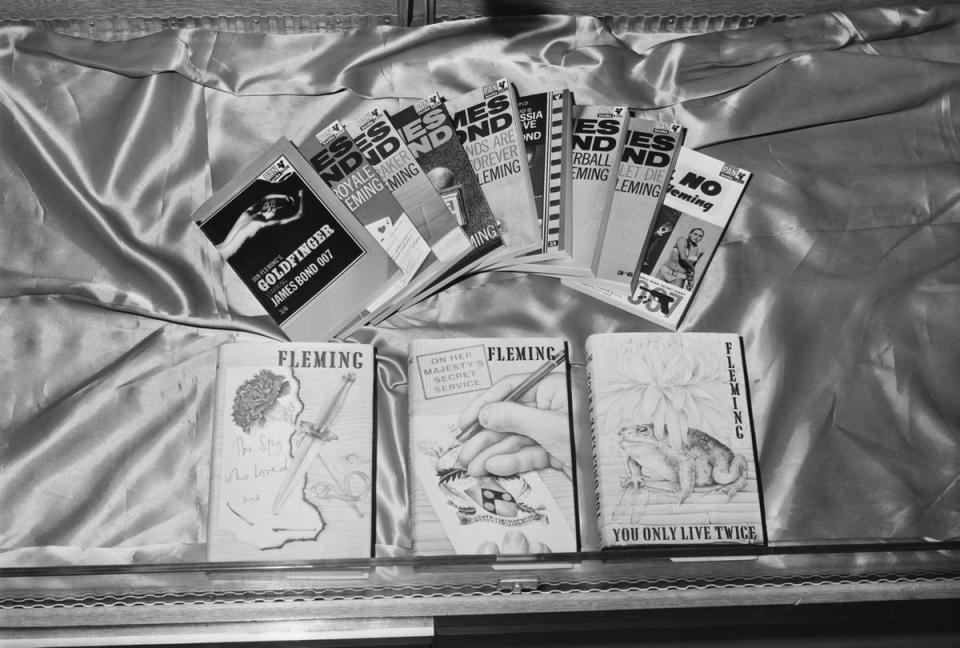Ian Fleming’s estate backs controversial James Bond edits: ‘It is something he would have wanted’
Ian Fleming’s estate has issued a statement affirming that the author would “agree” with the rewriting of his James Bond novels, in accordance with a sensitivity review.
Last week, it was announced that Fleming’s 007 books have been revised to omit racist langauge and a number of racial references.
In a statement posted to the Ian Fleming website on Tuesday (28 February), his estate wrote that the decision to rewrite the novels was made with “guidance from the author himself”, citing Fleming’s previous thoughts on making such revisions.
In it, the estate noted that Fleming had been in full support of Al Hart – editor at his US publisher, Macmillan – when Hart suggested some passages be cut or amended from Fleming’s 1954 book Live and Let Die ahead of its US publication in 1955.
The statement said that “the world was a very different place than it is now” when Fleming sat down to write his second James Bond novel in 1953.
While the text “drew little comment from his editors” in the UK, Hart suggested that several changes be made for its US publication.
“Some of these corrected minor factual errors. Others deleted or changed passages or words Hart felt were racially troubling, even then,” he wrote.
“Fleming approved all the changes and the version of Live and Let Die in America was therefore different from the British edition, and from his letters, it seems Fleming preferred the US version.”

The estate noted that it was Fleming’s historical support of such changes that led them to commission a review of his novels by sensitivity reader ahead of republishing the novels to celebrate the 70th anniversary of Casino Royale, Fleming’s first Bond book.
“With that decision [to republish], came a discussion. As the author’s literary estate and now publishers, what responsibility did we have, if any, to review the original texts?” they wrote.
After “consulting with a number of external parties”, the estate said that they “ultimately decided that rather than making changes in line with their advice, it was instead most appropriate to look for guidance from the author himself”.
“The original US version of Live and Let Die, approved and apparently favoured by Ian, had removed some racial terms which were problematic even in mid-1950s America, and would certainly be considered deeply offensive now by the vast majority of readers,” they wrote.
“We took that as our starting point, but felt strongly that it was not our role to comb out every word or phrase that has had the potential to offend. We thus decided to apply the sensibilities of the original US edition of Live and Let Die consistently, across all the texts,” they wrote.

According to the estate, the changes “are very small in number”, with some books, including Casino Royale, remaining completely unaltered.
They wrote: “We are certain Ian Fleming would approve these edits, just as he approved the changes to the US edition of Live and Let Die [...]
“In James Bond, Ian Fleming created one of the most famous literary characters in history. His books deserve to be read and enjoyed as much now as when they were written.
“We believe the new Bond editions will extend their pleasure to new audiences. We are certain that is something Ian Fleming would have wanted.”
Terms such as the N-word, and some racial descriptors have been removed from the text.
Perhaps surprisingly, however, a number of “dated references” to other ethnicities will remain in the books, such as Bond’s terms for and views of east Asian people.
You can find a breakdown of what has been cut and what hasn’t here.
The controversial move was announced days after it was announced that Roald Dahl’s best-selling children’s book were being rewritten to remove language considered offensive, such as the word “fat”.
Last week, the Queen Consort forced publisher Puffin UK to back down on its censorship of the author’s work after she weighed in on the row.

